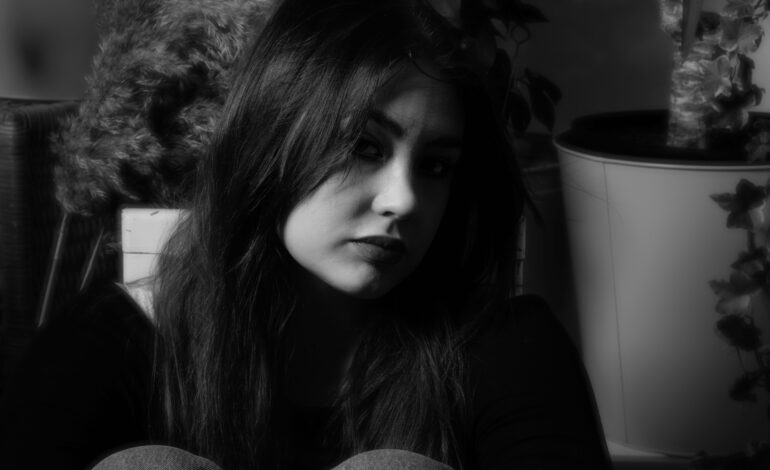In this interview, we have the pleasure of speaking with Elena Ortega, a talented classical guitarist whose latest album, Light after Darkness, marks a deeply personal evolution in their musical journey. In contrast to their previous album, which was a vibrant exploration of the Mediterranean’s landscapes and light through music, Light after Darkness, takes listeners on an introspective emotional voyage. This album touches on themes of self-discovery, loss, and the healing power of music. We delve into how this album differs from past works, the emotional intimacy that defines their playing, and the personal experiences that have shaped these powerful compositions. In this conversation, Elena Ortega also reflects on their cultural influences, creative process, and what they hope listeners will take away from this new chapter of their music.
How does “Light after Darkness” differ from your previous work, and what do you think fans will be surprised by?
This album is a more personal project. The first one was a journey along the Mediterranean Sea with music from composers who were inspired by its landscapes and light. “Light after Darkness” is not only a journey but an emotional experience. It reflects an introspective process where the listener may feel identified at any moment of their lives. Your music has been praised for its emotional intimacy. Can you talk about what that means to you, and how you achieve it?
I like to play the music I feel connected to. Each piece in this album has been chosen not only because I like them but because they have a special significance in my life. At the beginning it was not easy for me to open myself while playing because it is often scary, at least for me. Eventually, when you have so much turmoil inside of you, you need to take it out and when you do it, it’s a liberating experience. Can you walk us through your songwriting process? Do you have any specific habits or rituals that help you create?
As a classical performer, I don’t write or compose my own pieces, although I’d love to. For me, composing is a highly demanding issue that requires a lot of knowledge and practice. When I play a new piece, I try to understand the context of it and the composer’s intention and then I analyse it and start to play it taking into consideration all these details. What’s the most personal song on the album, and what’s the story behind it?
All of them are really personal, although if I had to choose, I would say that “Carta a Lucina” by Juan Erena and “Variations on an Anatolian Folksong” by Carlo Domeniconi had a deep impact on me while listening to them for the first time and then playing them. The first one is a nostalgic letter expressing the ever purest way of love and the second one is based on a popular Anatolian song by that talks about how you feel when you feel lost and confused and don’t know how to continue. Both are deeply moving. How do you think your cultural background influences your music, if at all?
I would say it is really important in my playing. As a child, I used to listen to many genres but I loved dancing flamenco and I also listened to Spanish traditional music at home, so Spanish classical music sounds very familiar to me. Also, I liked the Latin rythms. As a teenager, I started listening to some rock and heavy metal bands and felt really attracted to the power of the riffs and solos on the electric guitar. Later on, I also discovered ethnic music and how it reflects the culture of a place and I find this very interesting. Although I am a classical guitarist, I think I choose the music I play depending on how I feel at the moment, but somehow related to all this background. Can you tell us about some of the specific experiences or memories that inspired individual tracks on the album?
Each piece has been selected in relation to my own experiences. These include losses of loved ones, feeling confused without knowing what to do, self-introspection, the joy of meeting with friends and family… It is a journey of self-discovery that starts in the darkness and where finally light and calm arrive. The specific explanation of each piece can be found on the CD booklet, accompanied with quotes from several authors. How do you balance the need for creative expression with the desire to connect with a wider audience?
As a classical guitarist, I am aware this genre has its characteristics and it doesn’t have the same diffusion as other styles. In my case, I play pieces I feel attracted to so the musicality feels more natural for me and I think this is subtly perceived by the audience. What’s been the most fulfilling part of creating “Light after Darkness” for you?
Opening myself and using this emotional journey as a healing process on my own. Also, if any listener feels identified with the story and it helps them in any level, I would be more than satisfied and fulfilled. Can you talk about the role of storytelling in your music, and how you aim to tell a cohesive narrative?
I am not always looking for a story behind the music I play. Sometimes it’s just a piece of music without a specific meaning although I always try to learn all the context about it. Anyway, in my projects or concerts I try to find a connection among all the pieces. This link can be a thematic or geographic area, a historical style, a story and so on. What do you hope your music legacy will be in 10, 20, or 50 years?
Nowadays, the world is so uncertain that it’s difficult to imagine what will happen in a few years. I really haven’t thought about my music legacy as I would say I’m still in my first steps of my career but I would say that I hope my work now lets me continue my career in the future, improving and with more expertise and wisdom.
This album is a more personal project. The first one was a journey along the Mediterranean Sea with music from composers who were inspired by its landscapes and light. “Light after Darkness” is not only a journey but an emotional experience. It reflects an introspective process where the listener may feel identified at any moment of their lives. Your music has been praised for its emotional intimacy. Can you talk about what that means to you, and how you achieve it?
I like to play the music I feel connected to. Each piece in this album has been chosen not only because I like them but because they have a special significance in my life. At the beginning it was not easy for me to open myself while playing because it is often scary, at least for me. Eventually, when you have so much turmoil inside of you, you need to take it out and when you do it, it’s a liberating experience. Can you walk us through your songwriting process? Do you have any specific habits or rituals that help you create?
As a classical performer, I don’t write or compose my own pieces, although I’d love to. For me, composing is a highly demanding issue that requires a lot of knowledge and practice. When I play a new piece, I try to understand the context of it and the composer’s intention and then I analyse it and start to play it taking into consideration all these details. What’s the most personal song on the album, and what’s the story behind it?
All of them are really personal, although if I had to choose, I would say that “Carta a Lucina” by Juan Erena and “Variations on an Anatolian Folksong” by Carlo Domeniconi had a deep impact on me while listening to them for the first time and then playing them. The first one is a nostalgic letter expressing the ever purest way of love and the second one is based on a popular Anatolian song by that talks about how you feel when you feel lost and confused and don’t know how to continue. Both are deeply moving. How do you think your cultural background influences your music, if at all?
I would say it is really important in my playing. As a child, I used to listen to many genres but I loved dancing flamenco and I also listened to Spanish traditional music at home, so Spanish classical music sounds very familiar to me. Also, I liked the Latin rythms. As a teenager, I started listening to some rock and heavy metal bands and felt really attracted to the power of the riffs and solos on the electric guitar. Later on, I also discovered ethnic music and how it reflects the culture of a place and I find this very interesting. Although I am a classical guitarist, I think I choose the music I play depending on how I feel at the moment, but somehow related to all this background. Can you tell us about some of the specific experiences or memories that inspired individual tracks on the album?
Each piece has been selected in relation to my own experiences. These include losses of loved ones, feeling confused without knowing what to do, self-introspection, the joy of meeting with friends and family… It is a journey of self-discovery that starts in the darkness and where finally light and calm arrive. The specific explanation of each piece can be found on the CD booklet, accompanied with quotes from several authors. How do you balance the need for creative expression with the desire to connect with a wider audience?
As a classical guitarist, I am aware this genre has its characteristics and it doesn’t have the same diffusion as other styles. In my case, I play pieces I feel attracted to so the musicality feels more natural for me and I think this is subtly perceived by the audience. What’s been the most fulfilling part of creating “Light after Darkness” for you?
Opening myself and using this emotional journey as a healing process on my own. Also, if any listener feels identified with the story and it helps them in any level, I would be more than satisfied and fulfilled. Can you talk about the role of storytelling in your music, and how you aim to tell a cohesive narrative?
I am not always looking for a story behind the music I play. Sometimes it’s just a piece of music without a specific meaning although I always try to learn all the context about it. Anyway, in my projects or concerts I try to find a connection among all the pieces. This link can be a thematic or geographic area, a historical style, a story and so on. What do you hope your music legacy will be in 10, 20, or 50 years?
Nowadays, the world is so uncertain that it’s difficult to imagine what will happen in a few years. I really haven’t thought about my music legacy as I would say I’m still in my first steps of my career but I would say that I hope my work now lets me continue my career in the future, improving and with more expertise and wisdom.


